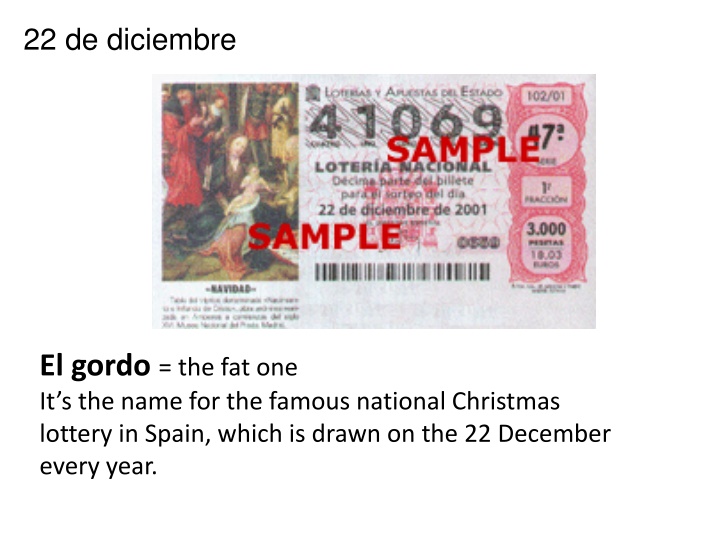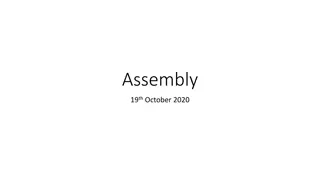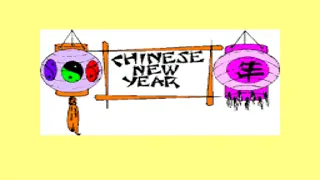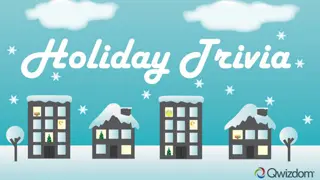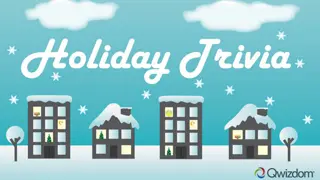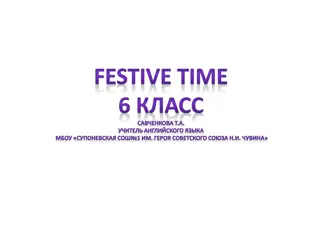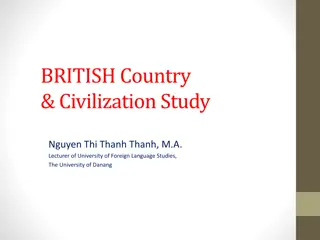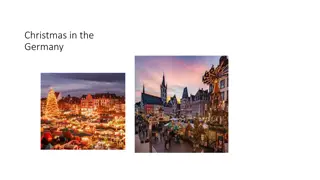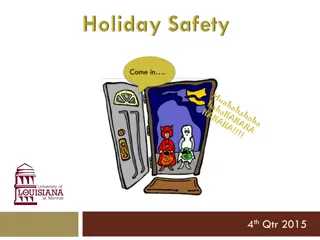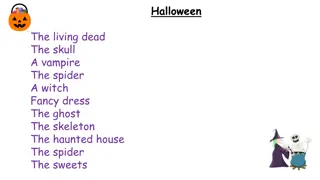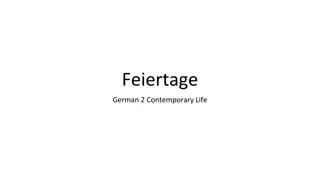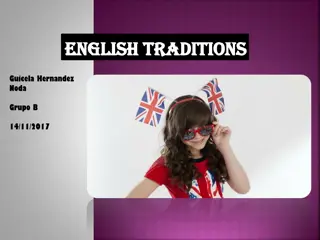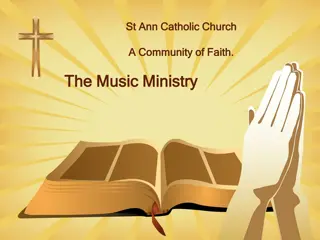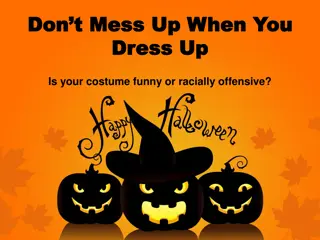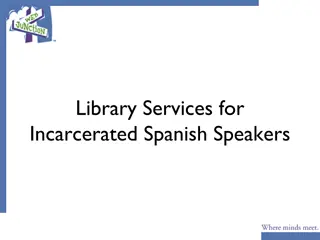Spanish Holiday Traditions and Celebrations
Learn about special holiday customs in Spain, including the famous national Christmas lottery, festive meals on Christmas Eve, the tradition of eating grapes on New Year's Eve, and the celebration of Three Kings' Day with a special cake and gifts for children.
Download Presentation

Please find below an Image/Link to download the presentation.
The content on the website is provided AS IS for your information and personal use only. It may not be sold, licensed, or shared on other websites without obtaining consent from the author.If you encounter any issues during the download, it is possible that the publisher has removed the file from their server.
You are allowed to download the files provided on this website for personal or commercial use, subject to the condition that they are used lawfully. All files are the property of their respective owners.
The content on the website is provided AS IS for your information and personal use only. It may not be sold, licensed, or shared on other websites without obtaining consent from the author.
E N D
Presentation Transcript
22 de diciembre El gordo = the fat one It s the name for the famous national Christmas lottery in Spain, which is drawn on the 22 December every year.
24 de diciembre Christmas Eve is called La Nochebuena. This is when all families gather for a big celebration meal in the evening. Lots of Cava (Spanish champagne) is drunk. Most families will go to midnight mass service in church (la misa del gallo).
25 de diciembre El d a de Navidad Christmas Day This is a quieter family day. Lots of families go to church again and then have a lunchtime meal. Most families will have un bel n (a nativity scene) in their homes.
28 de diciembre El d a de los inocentes day of the innocents = the equivalent of our April Fools Day. People make paper cutouts like this and try to stick them to each other s back without being detected, for a joke.
31 de diciembre La Nochevieja = New Year s Eve At 12 o clock, everyone listens to the 12 x gongs of the clock in Madrid s town square and each 12 grapes, one on each gong.
1 de enero El rosc n de Reyes is a traditional cake in the shape of a ring, eaten on New Year s Day. There is a small figure hidden in it. Whoever gets the piece with the figure has to make the rosc n for next year. It s good luck!
5 de enero The 3 kings (3 Reyes) parade through the streets of every town on 5th January. Instead of stockings, children put their shoes (los zapatos) outside their bedroom door, when they go to bed.
6 de enero Children get presents (los regalos) on the 6th January in Spain.
Fecha Imagen & explicaci n 22 de diciembre 24 de diciembre 25 de diciembre 28 de diciembre 31 de diciembre 1 de enero 5 de enero 6 de enero
